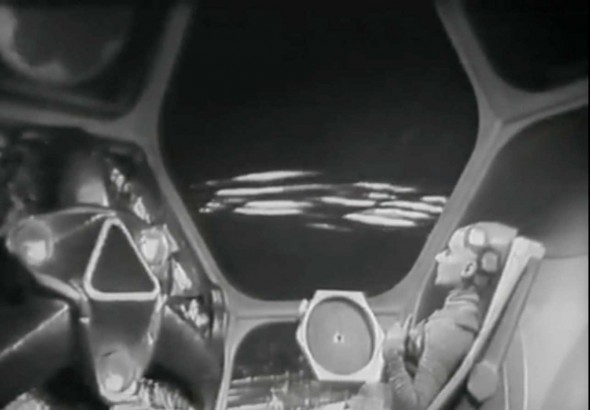THE MACHINE STOPS: E.M. Forster’s sci-fi scenarios are manifest (editorial)
by Char Easter
Over a century after E.M. Forster wrote his prophetic short story, “A Machine Stops,” we find ourselves living his sci-fi scenarios regarding indirect experience, ideation roles, and our, dare I say, dependency on and obsession with technology.
In the story, humans live beneath the wasted surface of the earth in sterile one-person hexagonal cells. They breath machine-made air, eat machine-made food and connect to other humans via the machine’s network. Physical contact is minimal. All menial tasks are taken care of by the machine, leaving humans with the task of generating ideas. Productivity is the prime directive. Visceral and emotional behavior is scorned as crude.
Forster describes the scenario in his first paragraph,
“Imagine, if you can, a small room, hexagonal in shape, like the cell of a bee. It is lighted neither by window nor by lamp, yet it is filled with a soft radiance. There are no apertures for ventilation, yet the air is fresh. There are no musical instruments, and yet, at the moment that my meditation opens, this room is throbbing with melodious sounds. An armchair is in the centre, by its side a reading-desk-that is all the furniture. And in the armchair there sits a swaddled lump of flesh-a woman, about five feet high, with a face as white as a fungus. It is to her that the little room belongs.”
The story is about a mother, Vashti, and her son Kuno. It begins with Kuno reaching out to his mother through a device that crudely renders his image and voice.
“What is it, dearest boy? Be quick. Why could you not send it by pneumatic post?”
“Because I prefer saying such a thing. I want—-”
“Well?”
“I want you to come and see me.”
Vashti watched his face in the blue plate.
“But I can see you!” she exclaimed. “What more do you want?”
“I want to see you not through the Machine,” said Kuno. “I want to speak to you not through the wearisome Machine.”
Vashti is irritated that he has interrupted her work. “I can give you fully five minutes, Kuno. Then I must deliver my lecture on “Music during the Australian Period”.”
In this first scene we see ourselves today. Digitized and mechanized devices take care of all menial tasks, yet we are overwhelmed with work. This work usually involves sitting at a desk until we are rendered lumps of flesh, except that we are driven to balance with our obsession for health and youth and staving off the obesity trend.
Vashti prefers indirect experience over physical contact. And the majority of Vashti’s human connections are solely to fulfill her tasks as a lecturer and ideation source. Kuno’s request that she visit him in person is an action that is beyond standard protocol and her comfort zone. She does it because of the gravity of the topic: his recent trip to the earth’s surface. This is an illegal venture and she is more irritated than sad that big brother is going to do the clamp down on her son. The daunting trip is also boring to Vashti. The Himalayas don’t give her any ideas.
Indirect experience becomes a climatic component later in the story when the Lecturer, one of the powers that be, decrees in a public announcement that direct experience is undesirable:
“First-hand ideas do not really exist. They are but the physical impressions produced by live and fear, and on this gross foundation who could erect a philosophy? Let your ideas be second-hand, and if possible tenth-hand, for then they will be far removed from that disturbing element – direct observation.”
You may wonder what Forster was trying to tell us back then but it’s obvious indirect experience is what we are doing today. Content is repurposed and propagated in semi-auto moderated online ‘zines. We live a portion of our communal life on our social networks, with a quick “Like” or comment if we feel a need for a closer connection. Is this the virtual world we are immersing or abandoning ourselves to? This post is indirect. A book is indirect. A movie is indirect, though one may argue it’s direct because the medium is a component or as, Marshall McLuhan coined in the ’60s, the medium is the message. And now augmented reality is about to take us a layer above our physical space.
How much does organic reality matter to us? Do we need physical properties as a measure to base our orientation of the virtual world; like gold to currency? Or do we need to let go of our physical metaphors and move on? And to what? In the story, Kuno defends his physical pilgrimage to the earth’s surface:
“Man’s feet are the measure for distance, his hands are the measure for ownership, his body is the measure for all that is lovable and desirable and strong.”
According to McLuhan, our fingers on our device extend the limits of physical time and space. In the story, Kuno warns his mother, ”You know that we have lost the sense of space. We say “space is annihilated”, but we have annihilated not space, but the sense thereof. We have lost a part of ourselves.”
RELATED FILMS
Out of the Unknown, is a classic film by Kenneth Cavander and Clive Donner that is based on The Machine Stops. Its special effects are so bad but it captures the great themes of the book.
The Freise Brothers short is a lush, stylish sci-fi, though it does not capture the critical themes of the book.
This entry was posted on Tuesday, March 26th, 2013 at 8:17 am. It is filed under articles, stories, ux in the wild, writing and tagged with char easter, writing. You can follow any responses to this entry through the RSS 2.0 feed.
